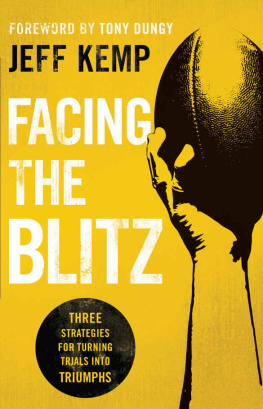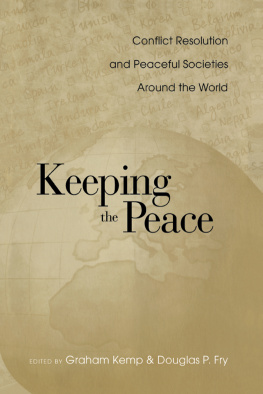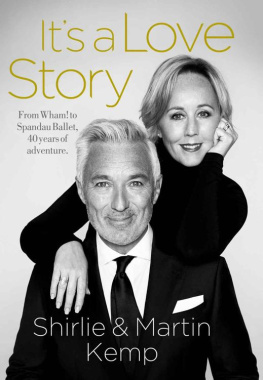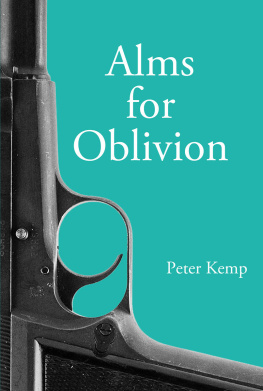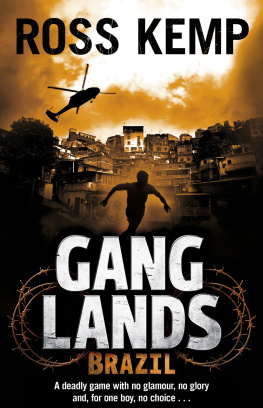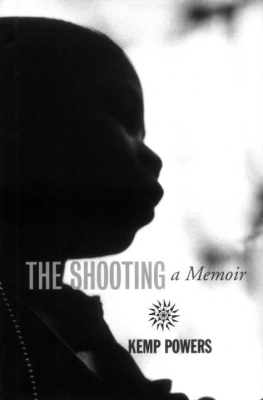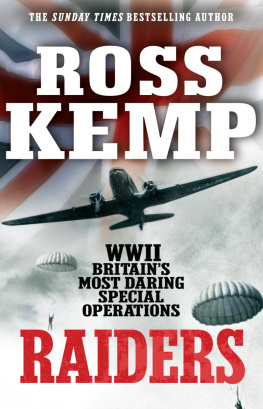Ross Kemp on Afghanistan
ROSS KEMP

PENGUIN BOOKS
PENGUIN BOOKS
Published by the Penguin Group
Penguin Books Ltd, 80 Strand, London WC2R 0RL , England
Penguin Group (USA) Inc., 375 Hudson Street, New York, New York 10014, USA
Penguin Group (Canada), 90 Eglinton Avenue East, Suite 700, Toronto, Ontario, Canada M4P 2Y3 (a division of Pearson Penguin Canada Inc.)
Penguin Ireland, 25 St Stephen's Green, Dublin 2, Ireland (a division of Penguin Books Ltd)
Penguin Group (Australia), 250 Camberwell Road, Camberwell, Victoria 3124, Australia (a division of Pearson Australia Group Pty Ltd)
Penguin Books India Pvt Ltd, 11 Community Centre, Panchsheel Park, New Delhi 110 017, India
Penguin Group (NZ), 67 Apollo Drive, Rosedale, North Shore 0632, New Zealand (a division of Pearson New Zealand Ltd)
Penguin Books (South Africa) (Pty) Ltd, 24 Sturdee Avenue, Rosebank, Johannesburg 2196, South Africa
Penguin Books Ltd, Registered Offices: 80 Strand, London WC2R 0RL , England
www.penguin.com
First published 2009
Copyright Ross Kemp, 2009
All rights reserved
The moral right of the author has been asserted
Except in the United States of America, this book is sold subject to the condition that it shall not, by way of trade or otherwise, be lent, re-sold, hired out, or otherwise circulated without the publisher's prior consent in any form of binding or cover other than that in which it is published and without a similar condition including this condition being imposed on the subsequent purchaser
ISBN: 978-0-14-104655-6
To everyone in the armed forces and their families
When you're wounded and left on Afghanistan's plains And the women come out to cut up what remains, Just roll to your rifle and blow out your brains And go to your Gawd like a soldier.
Rudyard Kipling, The Young British Soldier, from Barrack-Room Ballads, 1892
The Taliban are your problem. You are the Taliban's problem. All of you are my problem.
An Afghan villager to the author, summer 2008
Contents
Prologue
August 2007. The British base in Sangin, Helmand Province.
I've only recently returned to Afghanistan, I'm still acclimatizing and, not to put too fine a point on it, nature is calling. Not for me, however, the quiet comfort of my home lavatory, with perhaps a newspaper to keep me company as I do what needs to be done; nor even the relatively clean facilities of Camp Bastion.
Not out here. Nothing like.
I pad down to the thunderboxes, wet wipes in hand. They're a rickety line of cheaply cobbled-together cubicles, positioned well away from those parts of the base where soldiers congregate. And with good reason. As I approach, I hear a buzzing sound, then a familiar and unloved smell becomes gradually more intense. It is the unmistakable aroma of human turds.
There are two things that make this aroma more stinky than it might otherwise be. Firstly, they represent the accumulated waste product of three companies of soldiers. Secondly, the turds have been festering and maturing nicely in the midday sun. You can imagine what that does for them. I try to stop myself from gagging.
Inside the thunderboxes I know that whole families of flies will be feasting upon the soldiers' rancid deposits. More than once I've had a swarm of these insects fly out of the pan, up between my legs and onto the edge of my mouth. From one area of moisture to another. My lips clamp involuntarily shut as I suppress a shudder at the thought. It's not the only embarrassment I've had to undergo while sitting on the throne: there's clearly something very funny about a guy off the telly in an army thunderbox. Sometimes I wonder if there's a single soldier in Helmand Province that doesn't have a picture on their digital camera of Grant Mitchell taking a dump.
I take a breath. Not too deep, because I don't want to inhale the smell too much. Before I venture into one of the cubicles, I mutter under my breath, God, I've missed you.
As if in reply to my sarcastic comment, I get a slightly more putrid whiff.
My God! I shout. That stinks!
It's at just that moment that one of the doors opens.
I blink.
Out of the cubicle walks a woman. An intelligence officer. Like me, she's carrying wet wipes and she's still rubbing alcohol gel into her hands a precaution against D and V, the all-too-common diarrhoea and vomiting. She raises an eyebrow in my direction.
Thank you very much, she replies.
I open my mouth to try and explain that I meant the thunderboxes in general, not what she just left behind. But the moment has passed and so has any chance I might have had of a candlelit dinner for two at Sangin DC.
I shrug. It's 40 degrees in the shade. I'm hot, sweaty, dirty and more than a bit fragrant. Hardly what you'd call a catch, even without the disadvantage of my big mouth. Still, I wish I'd kept quiet.
I turn back to face the thunderbox. Come on, Ross, I tell myself. Worse things happen at war. You've been ambushed, RPG'd and shot at. Stop being such a pansy. I take another breath, walk towards these delightful fresh-air facilities, open the door and settle down inside.
And not for the first time I wonder just what the hell it is I think I'm doing here, miles from home and in the middle of a war zone.
This book will not tell you what it's like to be a soldier in Afghanistan. No book will. Nor will any TV show, film or documentary. It won't fully describe the blind fear you feel the first time you know an enemy marksman has you in his sights and is doing whatever he can to kill you. It won't fully relate the thrill and excitement of battle. Words are inadequate to convey the intense, brutal, burning heat of the Afghanistan summer; the vicious whipping of the coarse sand against your skin; the blunt shock of knowing that someone with whom you had joked and laughed only that day, is now dead; or the stark, unexpected beauty of flying along the Helmand river. These are things that can be understood only by experiencing them.
What I hope this book does give you is some small idea of what it's like for a young soldier fighting today on the front line of Britain's war on terror. I hope it gives you some insight into what it is we demand of our armed forces, and what sort of war it is they are fighting. There is a myth, I think, among the public at large that modern wars are fought from a distance, with smart bombs and technical wizardry, that the days of infantrymen fighting mano-a-mano, risking their lives, are at an end. If I've learned one thing during my time in Afghanistan, it's that this couldn't be further from the truth. Wars are still fought by men with spears. The spears might be more advanced than once they were; but our safety and liberty is still being defended by young men living and dying in the field.
This is not a political book; nor is it meant to be. The whys and wherefores of the war in Afghanistan are for more experienced political minds than mine. I'm interested in the soldiers. How they live, how they fight and how they cope with the intense and incredibly difficult situations they find themselves in. I've experienced in some small measure what it is that they go through, and if this book and the films that I've made on the subject have captured a small portion of that then I'm content. Because I feel very strongly that it's a subject that deserves to be explored.
Unlike the thunderboxes. I miss many things about Afghanistan, but I don't miss them. And if the female intelligence officer I so gravely insulted happens to be reading this, all I can do is offer my most sincere and heartfelt apologies


